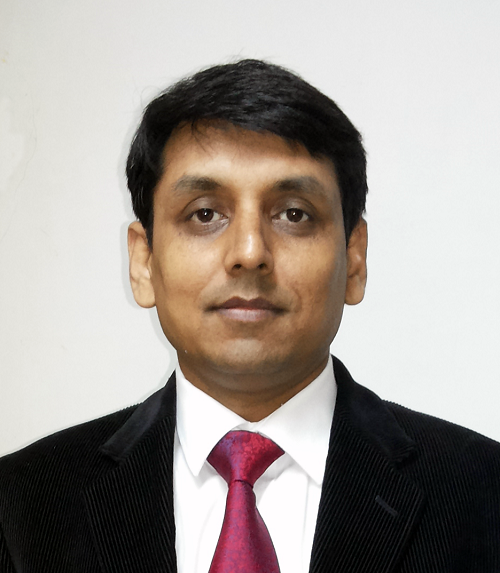Expert Lecture on "Deep Learning and Artificial Intelligence"
CIS Chapter, IEEE UP Section (CIS11) organized a Lecture Series on "Computational Intelligence". The speaker of the lecture was Dr. Nishchal K. Verma, Professor in the Dept. of Electrical Engineering at the Indian Institute of Technology Kanpur, India.
Date and Time
Location
Hosts
Registration
-
 Add Event to Calendar
Add Event to Calendar
Speakers
 Nishchal K. Verma of Indian Institute of Technology Kanpur, India
Nishchal K. Verma of Indian Institute of Technology Kanpur, India
Deep Learning and Artificial Intelligence
Biography:
Dr. Nishchal K Verma (SM'13) is a Professor in the Department of Electrical Engineering at the Indian Institute of Technology Kanpur, India. He obtained his Ph.D. in Electrical Engineering from the Indian Institute of Technology Delhi, India. He is an awardee of Devendra Shukla Young Faculty Research Fellowship by Indian Institute of Technology Kanpur, India for year 2013-16. Dr. Verma's research expertise falls under Artificial Intelligence (AI) related theories and its practical applications to many inter-disciplinary domains but not limited to machine learning, deep learning, computer vision, prognosis and health management, bioinformatics, cyber-physical systems, complex and highly non-linear systems modeling, clustering, and classifications, etc. He has published more than 240 research papers and 4 Books (edited/ co-authored) in the field of AI. He has successfully completed 23 projects from various funding agencies such as The BOEING Company, USA, DST, DRDO, JCBCAT, MHRD, SERB, CSIR, IIT Kanpur, MCIT, SFTIG, VTOL, etc. He has 15+ years of experience in the field of AI. He has been serving as Associate Editor/ Editorial Board Member of various reputed journals and conferences which include IEEE Transactions on Artificial Intelligence, IEEE Transactions on Neural Networks and Learning Systems, IEEE Computational Intelligence Magazine, and many more. He has also developed several AI-related key technologies for The BOEING Company, USA, and organized AI-related workshops, conferences, seminars, short-term courses, etc.
Email:
Address:Kanpur, Uttar Pradesh, India, 208016
Agenda
Abstract of the talk:
We are living in an era where Artificial Intelligence (AI) has started to scratch the surface of its true potential. Not only does AI create the possibility of disrupting industries and transforming the workplace, but it can also address some of society’s biggest challenges. Autonomous vehicles may save tens of thousands of lives and increase mobility for the elderly and the disabled. Precision medicine may unlock tailored individual treatment that extends life. Smart buildings may help reduce carbon emissions and save energy. These are just a few of the potential benefits that AI promises, and is starting to deliver upon. Even with the advances and success of deep learning algorithms in various applications like speech recognition, image classification, handwriting recognition, fraud detection, etc., the deep learning model has still some limitations. Due to advancements in fuzzy logic and systems in the past decades, handling such complex data has become easy. In effect, the addition of fuzziness into the model of a neuron makes it better to adapt the behavior of underlying systems that are imprecisely defined through their high degree of complexity. The linguistic and numeric forms of data can be handled together by a Deep Fuzzy Network (DFN). DFN is developed using both Mamdani and Takagi-Sugeno FIS where nodes of hidden layers act as Mamdani or Takagi-Sugeno FIS. DFN has high robustness towards uncertainties due to vagueness, imprecision, and ambiguity. There is a wide scope to develop very effective machine learning architectures based on DFNs with high abstraction quality, high robustness towards uncertainty due to vagueness, ambiguity, and imprecision as well as uncertainty due to randomness and intuitively intelligible to human beings in terms of design and working.

